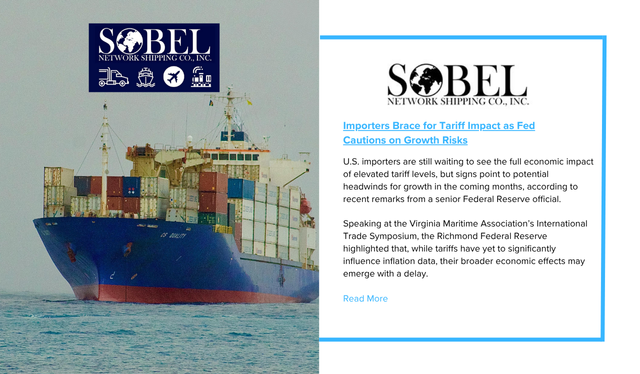U.S. importers are still waiting to see the full economic impact of elevated tariff levels, but signs point to potential headwinds for growth in the coming months, according to recent remarks from a senior Federal Reserve official.
Speaking at the Virginia Maritime Association’s International Trade Symposium, the Richmond Federal Reserve highlighted that, while tariffs have yet to significantly influence inflation data, their broader economic effects may emerge with a delay.
Current U.S. tariff levels average nearly six times higher than at the start of the year, with a new 100% levy on Chinese goods set to begin November 1. Despite this, inflationary pressures have remained muted, partly due to importers frontloading shipments during temporary tariff reprieves and grace periods.
Economists note that every 10% rise in tariffs typically adds about 1% to consumer prices, yet that pattern hasn’t materialized in recent months. The lag may be due to delays in tariff enforcement, exemptions on key imports, and importer hesitancy to adjust prices amid volatile trade policy signals.
Businesses, meanwhile, are taking a cautious approach — selectively raising prices in product categories with inelastic demand while holding firm in more competitive or consumer-sensitive segments. Companies serving other businesses have been more willing to pass through higher costs, while those selling directly to households remain restrained, limiting the inflationary pass-through.
Despite the uncertainty, the broader U.S. economy remains on relatively stable footing. Household debt levels are manageable by historical standards, and unemployment continues to hover near six-decade lows. However, labor market tightness — exacerbated by retirements and restricted immigration — could amplify future supply-side constraints should tariffs persist or expand further.
With trade tensions escalating and monetary policy remaining cautious, economists say the coming quarter will be critical in determining whether today’s tariff environment remains a one-time adjustment — or becomes a more structural drag on growth.


